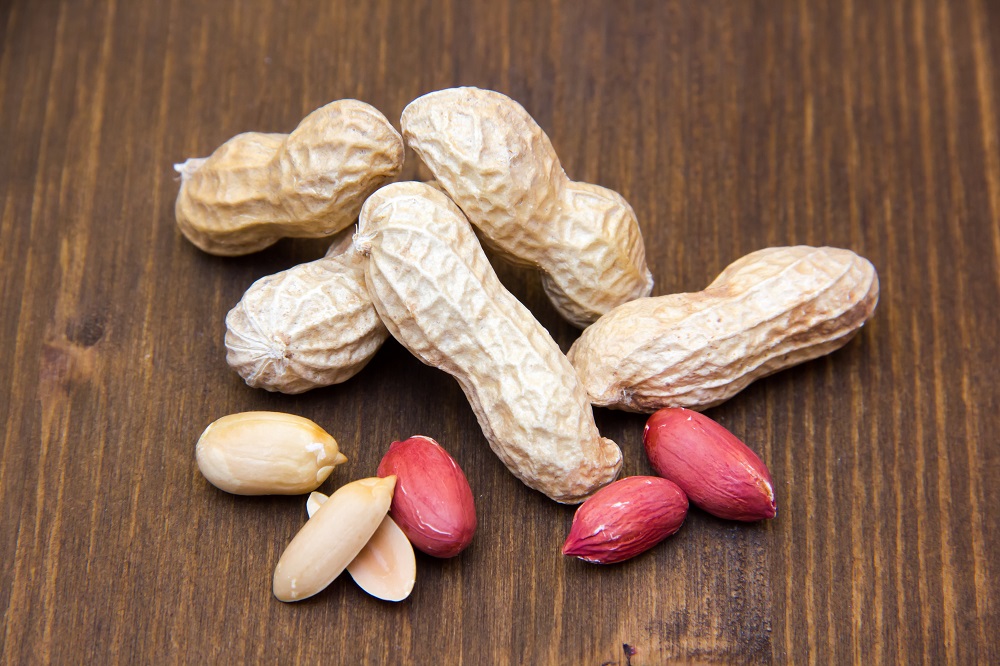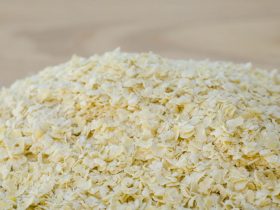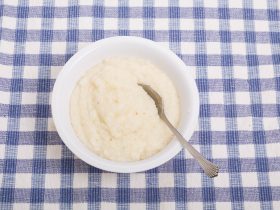The term peanut refers to the edible seed produced by a certain species of legume crop, specifically cultivated and harvested for the very purpose. Being one of the most commonly purchased nut products, peanuts are a mainstay in many pantries as a standalone snack, blended into a spread, or even used as a topping.
Because of their relatively small size, peanuts are often sold in large batches at grocery stores or even directly from peanut farmers themselves.
As most people cannot consume an entire batch of peanuts in one sitting, this begs the question; how long do peanuts last before spoiling?
Depending on the form and type of peanuts you are choosing to store, their shelf-life can last for as long a time as two years, though this requires the peanuts to be unprocessed and certain pieces of kitchen equipment to be available. A more realistic estimate for how long peanuts will last is approximately two months after roasting without their shell.
How Long Do Peanuts Last in Their Shells?
Peanuts, much like most other kinds of edible seeds, are best protected by the outer layer or shell that grows around them. Called a husk or hull in botany, this outer layer helps protect the delicate inner flesh of the seed from the damaging effects of external elements as well as from being consumed by microbiological life.

Peanuts, notably, have a distinct pod-like hull that can develop numerous seeds within it. With a cardboard-like texture, this fibrous shell is often removed prior to roasting or boiling of peanuts in factories.
However, should you have purchased peanuts still within their shells, this is actually a good thing, as peanuts within their shells can last for up to two years, as opposed to the two months they normally would without their shells.
How Long Do Roasted Peanuts Last at Room Temperature
Unlike most kinds of nuts, peanuts are usually sold by grocers and retailers in their roasted form so as to bring out the most flavor as well as make the nuts more safe to eat. This roasting of the peanuts produces distinct notes of sweetness that are otherwise difficult to discern in raw peanuts.
However, the break-down of molecular chains produces more readily available sugars and lipids, making the peanuts a prime target for bacteria and fungi, as well as accelerating the eventual rancidity of the oil present within the seed.
In shorter terms, roasting peanuts equates to a shorter shelf-life than that of shelled and raw peanuts. A process that may be remedied somewhat by keeping the peanuts within their sterilized and air-tight container, as well as coating them in things like salt or honey.
Stored in an air-tight container and placed in a dark and cool room free of excess moisture, roasted peanuts can last for up to three months at room temperature.
How Long Do Shelled, Raw Peanuts Last at Room Temperature
While peanuts last the absolute longest with their shells still intact, choosing to remove their shells or purchasing already shelled peanuts prior to storing them does not affect their shelf-life as much as other processes like roasting or baking would.
Shelled and raw peanuts can last for up to four months in your pantry or cupboard, though they may grow stale if the proper storage procedures are not employed. This is due to the effects of oxygen on the sugar molecules present within the peanut, as well as the fact that any non-lipid-based moisture will be evaporated as air leeches it out.
To prevent this from happening, it is best to store the peanuts in an air-tight container lined with aluminum foil so as to prevent the peanuts from absorbing the smell of the container or vice-versa.
Keep this container in a dry and cool room, as excess moisture or temperatures too warm can cause condensation, initiating the growth of bacteria and fungi on the peanuts.
Another method to keep raw peanuts shelf-stable at room temperature is to fully submerge or soak them in brine or honey, as these fluids will insulate the peanuts from the elements as well as make it difficult for microbial life to penetrate the surface.
Keep in mind that this method is not fool-proof, however, and the peanuts are still perfectly capable of spoiling or growing stale given the wrong conditions or enough time.
How Long Do Peanuts Last in the Fridge?
Though peanuts in most of their forms are ordinarily stored in the pantry or cupboard, storing them in the refrigerator has few drawbacks and is a perfectly acceptable way to keep them preserved without the need for a dark and cool room.
If you are choosing to refrigerate peanuts that have already undergone roasting and were previously exposed to the open air, it is likely that they will last for as long as six months, so long as they are stored in the right container.
However, raw peanuts and peanuts that are still within their pods can last for an impressive twelve months in the refrigerator, a much longer length of time than they ordinarily would at room temperatures.
Simply place any kind of peanut in an air-tight container lined with tissue paper so as to absorb any excess moisture that may be present within the container. Keep this container in the deepest part of your refrigerator, far from any sources of light or moisture.
Should You Freeze Peanuts?
Yes – peanuts can be frozen if you so desire. Unlike other forms of organic produce placed in the freezer, peanuts are relatively low in water content and as such experience very little degradation of their quality or appearance when they are frozen.
In order to freeze peanuts, simply ensure that they are completely dry before starting the preservation process, as moisture between the individual nuts or pods will cause them to freeze together.
Wrap the peanuts in a layer of cling wrap or aluminum foil in order to insulate them from the effects of freezer burn. Once completely wrapped, place the peanuts in an air-tight container that can withstand the temperatures of the freezer.
Leave the peanuts in the freezer for up to a whopping two years, or until they begin to show signs of spoilage. Keep in mind that roasted peanuts will likely begin to expire sooner than this point in time.
References
1. Unknown Author. (N.D.) “The Peanut Institute – Peanut Facts”. peanut-institute.org.
2. Baughman, Todd; Grichar, James; Black, Mark; Woodward, Jason; Porter, Pat; New, Leon; Baumann, Paul; McFarland, Mark (N.D.) “Texas Peanut Production Guide” (PDF). Texas A&M University.





Hi, I'm Dom
Dom Eats was started to help other people fall in love with food. While cooking can feel intimidating, it doesn't have to be.